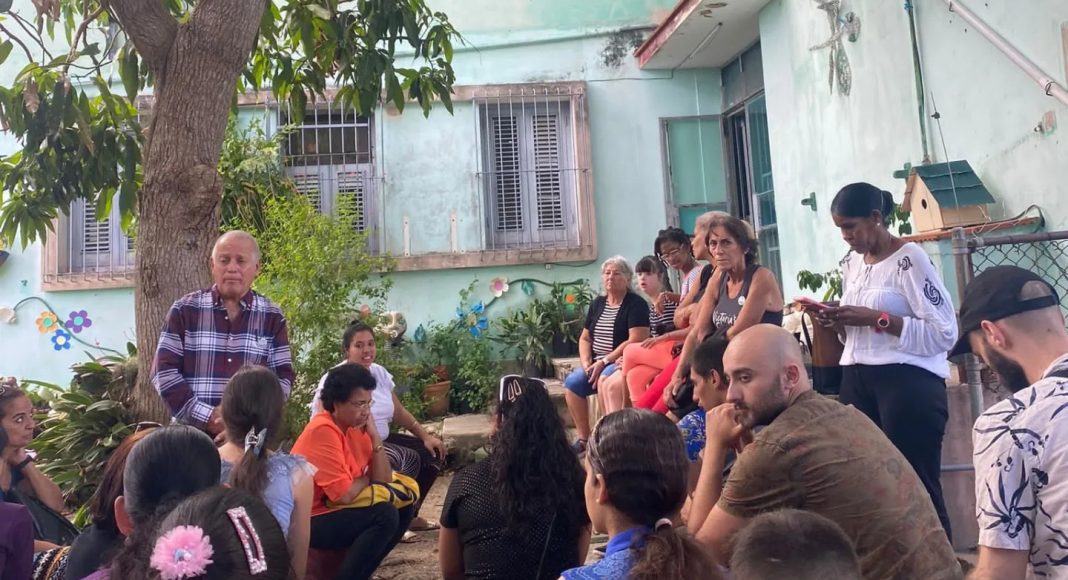Climate change is already profoundly affecting Cuban society, as it is elsewhere in the underdeveloped nations. Cuba has already begun to experience rising sea levels and one million Cuban people live on or near the coast. Our brigade met with representatives from the Environment Agency at an agroecological community project known as ‘Granjita Feliz’ (‘Happy little farm’), in Guanabacoa, Havana, to learn more about the government’s ambitious 100-year plan to combat the adverse effects of climate change: Tarea Vida (‘Life Task’).
Despite being situated away from the coastal areas, Guanabacoa was chosen by the Cuban state as the sole recipient of EU funding and technical training related to climate change. This decision was instrumental in dispelling the misconception that climate change only affects coastal regions.
As part of the Euroclima+ project, implementing Tarea Vida in Guanabacoa has involved a gender-inclusive approach to climate change solutions. Tangible outcomes of this collaboration include the development of three bike routes through Guanabacoa and the installation of solar panels. There is a focus on increasing community involvement.
Professor Juan Ernesto Gutierrez Leyva is part of the Latin American Faculty of Social Sciences (FLACSO) which has been assisting the Cuban state with the task of implementing Tarea Vida in a way which ensures participation of the whole Cuban population. At a meeting at Havana University Gutierrez told our brigade: ‘You can have all the most powerful projects, but if the population are not included or don’t understand, there will be a very big gap between what the project wants and what the people need to understand and support it.’
Tarea Vida shows how socialist planning and mass participatory democracy are crucial for humanity to survive the climate crisis which has been created by capitalism.
Will Jones
FIGHT RACISM! FIGHT IMPERIALISM! 298 February/March 2024
Brigade to Cuba 2023/24
Cuba resists end the us blockade
Socialist Cuba advances womens’ and LGTB rights




